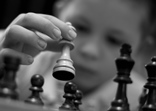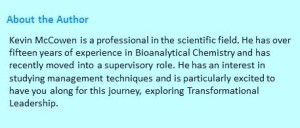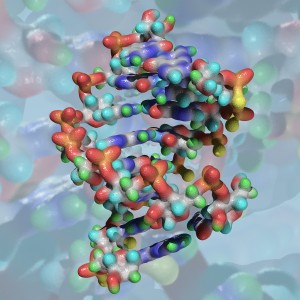Building Core Leadership Skills
 “Who do you think of when you imagine great leaders?” We were asked this question in the second week of Navy Surface Warfare training. There were many answers proposed, all of them being leaders with some positive intention: Gandhi, the Dalai Lama, presidents and many others. I, still not fully rid of my punk kid attitude (and not experienced enough to grasp the immense viewpoints outside of my world) couldn’t resist the temptation to make a smart aleck comment. “Hitler,” I blurted out. There was a snicker from a couple of the other sailors in the classroom.
“Who do you think of when you imagine great leaders?” We were asked this question in the second week of Navy Surface Warfare training. There were many answers proposed, all of them being leaders with some positive intention: Gandhi, the Dalai Lama, presidents and many others. I, still not fully rid of my punk kid attitude (and not experienced enough to grasp the immense viewpoints outside of my world) couldn’t resist the temptation to make a smart aleck comment. “Hitler,” I blurted out. There was a snicker from a couple of the other sailors in the classroom.
“Exactly,” said the Marine Sergeant leading the training. “I can see that you thought you were being funny, but leaders have certain traits that make them leaders. One of those most important is the ability to get people to follow them. Hitler wasn’t a nice person, but he got people to follow him. Another trait is having a vision to work toward. Hitler’s vision wasn’t a kind vision, but it was a powerful vision that resulted in people following him.”
That was the military, and it was still when you obeyed those above you in rank because there was no time in war to discuss opinions. The remainder of the class had much less to do with the traits inherent to leaders and more to do with how experience qualifies those with rank. Experience gave them the ‘skills’ necessary to make the unquestionable decisions. Of course, we now know this isn’t necessarily the most effective form of leadership. Even the current military is stressing team decision-making over the one- person-shall-rule-them-all mentality.

How Well Do You Rate on the Core Leadership Competencies?
In this week of Transformational Leadership, we dig into the necessary traits of an effective leader, according to Mike Lombardo and Bob Eichinger. Lombardo and Eichinger compiled 15 years of research to develop what they saw as 67 core competencies of effective leaders. Most of the traits seem pretty intuitive. I would expect leaders to be action-oriented, good decision makers, good problem solvers, and to have a strong drive for results. On the other hand, there are some traits that I wouldn’t have considered until I saw this list. Consider that humor is one of the traits they list as essential, albeit positive and constructive humor. All of these individual traits are listed in the Lominger competency sort cards that we reviewed in class. The cards each list a skill, such as the first: action oriented. The skill is then broken down into the variants of each skill. Skilled people who are action-oriented enjoy working hard. When the skill is overused, the person may become a workaholic. When the skill is not present, a person is slow to act on opportunity. Each of these skills is then grouped into one of four factors and one of 12 clusters within those factors.
Choosing a number of the cards, we assessed how skilled we were in that trait and used that to determine if this was a skill on which we should work to improve and include as part of our six-month leadership action plan. Some of the skills that I determined I needed to improve upon were organizing, planning, and priority setting. As you might have already guessed, those skills fall into the same category. It also wasn’t an eye-opening revelation for me. I identified these as places for improvement years ago and I’ve continued to add layers to how I approach planning and organizing. For instance, I started by making task lists. Later I began to prioritize the tasks. When I started this course I committed to scheduling time each month and week to break bigger goals into achievable parts and fit them into my daily schedule. The process will continue to be refined as I learn more about myself. As I’ve said before though, every journey in leadership is about practicing improvement and not achieving perfection.
One important thing I’ve learned about myself, in my own journey, is that I’m a time optimist. I believe I can achieve tasks in less time than is realistic. As part of my effort to combat this, I’ve added journaling to my six-month action plan. In my journal I keep records of the actual time to achieve a task compared to the time I thought it would take.
Taking the Lominger cards a step further, there is a For Your Improvement program. In this book, each of the competencies is described. In addition to the skilled, unskilled, and overused parameters, advice is included related to developing or improving the competency and potential reasons for having lower skill in this area. I find this is a great tool for constant improvement. As Jim Rohn has said, “You cannot change your destination overnight, but you can change your direction overnight.”
What are your strongest competencies? How can you start changing your direction to change your destination?
Posted in: Transformational Leadership
Tagged with:
The Science of Spiritual Awareness
Spiritual intelligence has always conjured feelings of religiousness for me. Indeed, during my first reading of The 7 Habits of Highly Effective People, I clearly remember reading to the point at which Stephen Covey discusses reading the scriptures as part of his daily revitalization (sharpening the saw) and believing that the rest of the chapter probably didn’t apply to me, as I wasn’t really a religious person. As many of you most likely already know, and as I’ve come to understand through diverse readings and the Transformational Leadership course in particular, spirituality doesn’t have to involve religion or a specific higher power and, as I’ll describe here, shouldn’t involve any specific religion.
The Transformational Leadership lesson for spiritual intelligence was to work together to create kits containing hygiene products and a small amount of food to hand out to the homeless. A practice such as this helps to increase our sensitivity of the plight of those around us, and restoring our innate connection to all others. Although a practice that might involve helping others can build our spiritual intelligence, to achieve true spiritual intelligence we have to go beyond our experiences in life. Spiritual intelligence is innate in all of us, and therefore, I believe, something which we unlearn by our worldly experience.
It’s about releasing our ego, and allowing the source of everything to flow through us to understand our shared experience. Spiritual intelligence transcends values and experience in life to understand everyone as the same. As I’ve discussed on previous postings, we have value sets and beliefs that we use to create a map of our world. Despite the fact that we are creating our individual maps based on our experience, true spiritual intelligence is the understanding that all of our maps will be a part of the same atlas as we all share a similar experience.
Is Everything Really Connected?
The movie Avatar is a great example as to how pain and triumph can be shared by all living things and felt as one experience. Even though the characters in the movie looked unique and had unique talents, they also shared a similar experience and felt the pain of nature when part of their world was destroyed. This is the essence of spiritual intelligence— it transcends values and ethics, our ego, to allow us to feel the connection that exists between all of life. Today, more than ever in our human history, an increased awareness of spiritual intelligence is needed. Ironically, as the world has become closer and more accessible due to technology, we have become less connected and more distant from real human experience as we spend less time together. I think this explains the fascination with social media sites: we yearn to feel with others even if we don’t realize this is why we can’t stop opening Instagram to see what is happening.
Religion vs. Science
For centuries, religious explanations of life have given meaning to our existence. Gradually since the 17th century, faith based descriptions of life gave way to scientific enlightenments based on physical laws. The shift to a scientific explanation for life— the thought that we are just a collection of chemicals—gave way to disconnected melancholy that can be seen in literature and art over the previous hundred or so years. As much as science had played a role limiting our shared faith, it has also been used to restore it. In the past several decades, scientific study showed that a spiritual intelligence increases functions, benefiting our life. In class, we created kits to hand out to the homeless but there are many other practices which can increase our connection to others and improve our spiritual intelligence. It can be as simple as making a goal to say hi to one stranger a day, or it could be as involved as volunteering in an impoverished community. Some of the proven benefits of increased spiritual intelligence are listed below.
- Emotional Balance-Increased spiritual intelligence activates the capabilities of the non-ego centered response, which limits the emotional response.
- Fulfillment-increased spiritual intelligence brings greater meaning to life by giving purpose through a shared experience.
- Increased performance
- Increased happiness
To gain true spiritual intelligence, as Yoda said, “You must unlearn what you have learned.” We were born connected to all others. We have an innate ability to understand what others feel. We are innately spiritual. Despite this inborn ability, we can lose it as we begin to learn from others. The same as we must do to develop our other intelligence streams, so we must do to maintain or re-develop spiritual intelligence, and begin a routine practice to allow us to let go and know what is innate.
Are you ready to increase your spiritual awareness?
Take the next move and register for the Transformational Leadership course. The skills you’ll learn will improve and continue to enhance your leadership abilities in all aspects of your life. Find out more and register for the fall semester here.
Posted in: Uncategorized
Tagged with:
Build Networks With Relational Intelligence

Ready to Make Your Next Move? Click here for more information or to register for Transformational Leadership.
This week is about relational intelligence, which is related (pun intended) to emotional intelligence. I once heard relational intelligence described as the cousin to emotional intelligence. Others describe it as a combination of emotional intelligence and somatic intelligence applied to how we understand ourselves and others, while also affecting our interpersonal relationships. In the emotional intelligence model proposed by Goleman, Bradberry and Greaves, relational intelligence is a component of overall emotional intelligence. Relational intelligence fits in the category of social competence, in their proposed emotional intelligence model.
|
Personal Competence |
Self-Awareness |
Self-Management |
|
Social Competence |
Social Awareness |
Relationship Management |
Two Witches
In class we watched some of the live performance from the musical Wicked. Wicked explores the relationship between Glinda, the good witch, and Elphaba, the wicked witch, during the time before Dorothy arrives in the Land of Oz. The short musical section we watched in class focuses on the personal change that occurs in both of them due to their relationship. One of the prominent lines in the song is, “Who can say if I’ve been changed for the better? But because I knew you, I’ve been changed for good.”
The musical explores how the relationship between them leads to each taking different paths in life. Throughout our own lives we are touched by many relationships. Even seemingly insignificant relationships have profound effects on our lives. When I was younger growing up in Utah, I was really interested in hunting and fishing. I read years of back issues of Sports Afield and Field and Stream magazines that my grandpa collected. I even had my own subscriptions to keep up on the current information. I read over and again every fly fishing story and technique available. Finally, I convinced my dad to buy me a fly rod and reel set up. My summer weekends were spent camping with my whole family in the Uintah Mountains in Northern Utah. I spent years fishing those streams and rivers with salmon eggs, but there was something glamorous about fly fishing that I had to try. Read More…
Posted in: Transformational Leadership, Uncategorized
Tagged with:
Emotional Intelligence and Ten Tips to Start Improving Yours
This week we dig even deeper into what makes us tick by exploring emotional intelligence and our Emotional Quotient (EQ) scores. Emotional intelligence is a topic that, I think, is frequently misunderstood. Many people I have talked to explain it simply as being able to understand our emotions and why things make us feel a certain way. It is actually much more than that! If broken down separately into the two words from which the concept arises it becomes clearer.

Emotional Response
Emotion results from an impulse to act. Throughout biological evolution, we have been primed for action with good reason. For thousands of years emotions were a primal experience. Emotions meant a here and now prospect of survival. Fear resulted from the impending fight with a large animal, while excitement meant we had defeated that animal. For eons our emotions served as a guide to our survival. Emotion led to taking direct action.
Intelligent Response
Intelligence, on the other hand, implies the idea of thoughtfulness. Of taking the time to think things through, understand them, and act upon them based on what we understand. Intelligence can be book smarts, street smarts, and directed at specific knowledge. You can see how the evolutionary notion of emotion and immediate action run somewhat counter to the idea of intelligence. Emotional intelligence is, therefore, understanding our emotions and applying the appropriate actions based on that understanding.
There is an additional component to emotional intelligence that is often overlooked, which is understanding the emotions of others and how our emotions have the ability to impact their emotions. If you have ever walked into a meeting that you expected to be about a common topic and felt some tension before anyone even spoke, you have experienced the influence of other’s emotions. There have been plenty of studies to show that while showing certain facial expressions as we speak, other people’s levels of stress hormones increase . Part of emotional intelligence is understanding the nature of these emotions and how to control the situation appropriately. Some of you have an almost innate talent for understanding how this works. Others of us may have difficulty in understanding our emotions or how we influence the emotions of others. Read More…
Posted in: Change Management, Transformational Leadership
Tagged with: change, Executive Coaching, goates, Goates Consulting Group, Kevin McCowen, launch, Leadership, leadership coaching, management, Personal Transformation, strategic, Transformational Leadership
Are you Hungergized or Hangry? (Develop Leadership by Practicing Mindfulness)
 This is one of the deep dives Greg has been talking about. Four lessons into the Transformational Leadership course and we finally hit the high dive. The previous three weeks have been preparation for this moment. There were definitions, clarifying what defines trust, an overview of the streams of leadership competence, the Myers-Briggs personality test, and the Trust quotient (in which we asked others to provide feedback about how they felt we rated on various aspects of trust). All of these topics were interesting and provided good information. It is vital that we understand how people feel about us, especially when it’s significantly different from how we see ourselves.
This is one of the deep dives Greg has been talking about. Four lessons into the Transformational Leadership course and we finally hit the high dive. The previous three weeks have been preparation for this moment. There were definitions, clarifying what defines trust, an overview of the streams of leadership competence, the Myers-Briggs personality test, and the Trust quotient (in which we asked others to provide feedback about how they felt we rated on various aspects of trust). All of these topics were interesting and provided good information. It is vital that we understand how people feel about us, especially when it’s significantly different from how we see ourselves.
This next unit focuses on the specific and personal aspects of leadership, particularly on the six streams of leadership. If you recall, we spoke briefly on these in the blog post titled “Creating Your Map to Becoming a Better Leader.” These six streams were:
- Somatic Intelligence
- Emotional Intelligence
- Relational Intelligence
- Cognitive Intelligence
- Spiritual Intelligence
- Integrative Intelligence
Now we can start focusing on each one and begin your personal journey to change. This week, we will talk about Somatic Intelligence.
Can you let the princess go? Read More…
Posted in: Transformational Leadership, Uncategorized






